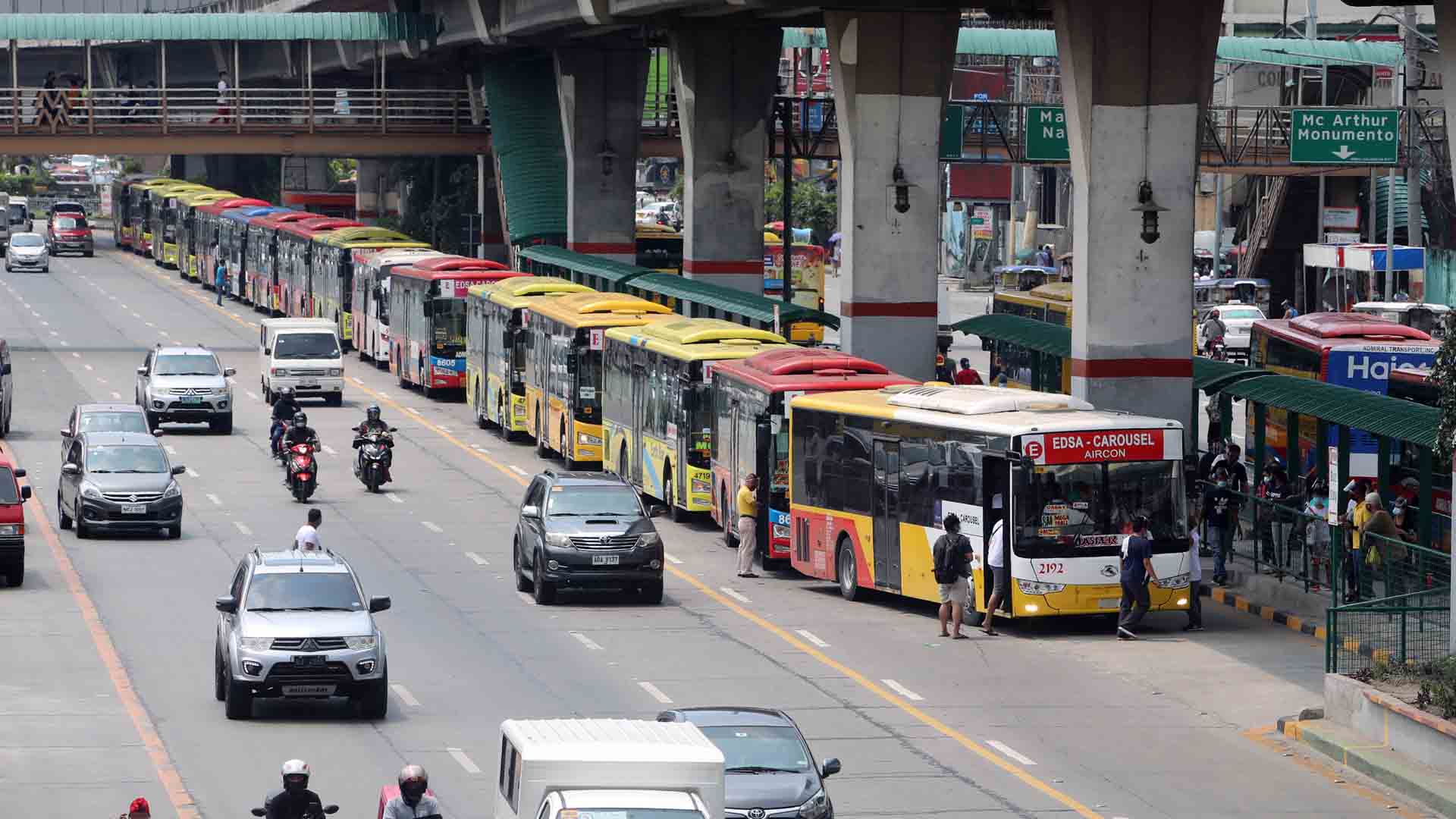The Philippines’ largest federation of workers’ unions is reminding the Asian Development Bank (ADB) of its commitment to prohibit the use of deadly asbestos in all its funded projects by ensuring its $123 million forthcoming covered pedestrian access to mass transport trains loan projects at several locations along EDSA are asbestos-free.
In a statement released December 14, 2020, the Asian Development Bank (ADB) announced it has approved a $123 million loan to help the Philippines build safe, wide, well-lit, and disaster-resilient elevated walkways for pedestrians along Manila’s most congested thoroughfare, the Epifanio de los Santos Avenue (EDSA)– otherwise known as the EDSA Greenways Project.
The project will help the government construct five kilometers of covered walkways, which will be linked to mass transit stations along EDSA, namely the Balintawak, Cubao, Guadalupe, and Taft stations. The 5-meter-wide structures, equipped with elevators and monitoring systems, will be easily accessible for pedestrians, including the elderly, pregnant women, young children, and people with disabilities, the ADB statement said.
It added that the project will also support Metro Manila’s recovery from the coronavirus disease (COVID-19) pandemic by creating much-needed jobs during the construction period, with Php3 billion ($61 million) to be spent on local raw materials. The civil works contracts for the project are expected to be awarded during the first half of 2021.
“The EDSA Greenways Project will definitely be a major convenience for commuters, provide ease to all sorts of pedestrians, create jobs, help jumpstart the local economy, and help reduce carbon footprint. However, the health and safety of commuters can only be ensured if the materials used for the structures are free from asbestos-containing materials,” said Gerard Seno, National Executive Vice President of ALU-TUCP.
Government daily estimates an average of 600,000 commuters uses the Edsa MRT trains most of which are workers going to and from different workplaces in metropolis.
“As a civil society organization social dialogue partner, we remind the ADB of its commitment to zero asbestos and asbestos-containing materials (ACMs) in all its funded projects beginning with this EDSA Greenways Project,” Seno added.
Aside from organizing unions across multi-sectors, advocating for higher wages and campaigning for better labor standards and occupational safety and health standards, the ALU-TUCP is also a part of a global ban asbestos network coordinated by the International Ban Asbestos Secretariat (IBAS) and composed of trade unions, asbestos victims’ groups, campaigning organizations, advocates and health experts.
In a November 9 communication to IBAS, Bruce Dunn, Director of the ADB’s Safeguards Division, confirmed the bank’s intention to prohibit the use of all asbestos-containing products on ADB projects amid policy reform pressure asserted by the network.
“We are aware of the severe health effects that an exposure to ACMs [asbestos-containing materials] can have on people exposed to this material. For this reason, ADB is taking several actions intended to limit the risks of asbestos exposure in our projects.
We are now preparing an internal memorandum that recommends for future ADB projects to refrain from supporting the procurement of any products containing asbestos. This is an interim measure until the SPS [Safeguard Policy Statement] is updated.
Rest assured that ADB is committed to drive a safe, healthy, and sustainable development in our DMCs [developing member countries]. We believe that we are taking the necessary steps to ensure that the risks to the potential presence of ACMs in our project (sic) are avoided or mitigated to the full extent possible, ” Dunn said.
The ADB has since 2009 explicitly prohibited financing for the production of, trade in, or use of unbonded asbestos fibers.
However, the purchase and use of bonded asbestos cement sheeting where asbestos content was less than 20% has been permitted.
“We welcome the ADB’s commitment to outlaw the use of toxic asbestos materials in all the projects it funds and urge that other regional banks, international lending institutions and development programs take heed of the bank’s policy change,” said Laurie Kazan-Allen, IBAS coordinator.
Other members of the network, meanwhile, says this ADB policy shift raises the awareness of asbestos danger to decision-makers, governments and other lenders.
“Asian countries account for the majority of asbestos consumed every year. This substance – deemed too hazardous to be used in the industrialized world – is used in countries with few, if any, health and safety regulations and no capacity to treat people suffering from debilitating and potentially fatal asbestos-related diseases,” said Sugio Furuya, Asian Ban Asbestos Network (ABAN) coordinator.
The profile of the ADB in these countries cannot be over-emphasized. With its budget of around $22 billion per year, the Bank not only provides funding for infrastructure and economic development projects but also sets the tone for decision-makers, governments and other lenders. The Bank’s prohibition of asbestos sends out a signal loud and clear that there is no place in the 21st century for asbestos, Furuya said.





















